Our AI Engineering Bootcamp is an intensive, hands-on training program designed for ambitious professionals ready to master the end-to-end AI lifecycle. Here, you’ll learn everything from data ingestion to deploying autonomous agents. Whether you’re aiming to upskill in your current role or pivot into AI development, you’ll gain the most sought-after skills that today’s tech teams demand.
Delve into core AI engineering concepts and tools: command-line workflows, version control, advanced Python programming, data handling with Pandas, SQL and NoSQL stores, machine learning fundamentals, deep learning with PyTorch, and building production-ready AI agents. You’ll also learn to package, containerize, and deploy your solutions on cloud platforms.
By graduation, you’ll be prepared for roles such as AI Engineer, ML Engineer, AI Developer, or ML Ops Engineer—armed with a portfolio of real-world projects that demonstrate your ability to solve business problems with AI.
This is a great bootcamp to launch your AI engineering career in Greece or abroad and become part of our vibrant Community.
Led by AI industry experts with deep, real-world engineering experience:
.png)
25% theory - 75% practice
During each day we spend max 25% of the time for theory (lecture, live coding, code reviews) in order to get you as fast as possible to the exercises, where the real learning and fun begins!
Real-world knowledge
Our instructors are professionals in the industry. With their real-world experience, they will help you learn practical and soft skills and build a strong foundation to begin your data science career.
Each module introduces new concepts, leading to the final project where you apply everything you've learned. This hands-on experience solidifies your new in-demand skills and demonstrates your ability to put them to use.
Get the curriculumGet access to pre-work materials
Access to pre-work material to get you started. It must be completed before the first day of class and, then, join our Discord classroom!
Tools that will be used:
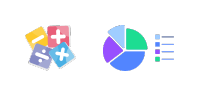
.png)
Get acquainted with the AI engineering lifecycle and learn essential command-line tools to navigate, automate, and manage projects efficiently.
Master Git fundamentals—branching, merging, and collaborative workflows—to track changes and collaborate seamlessly on codebases.
Review core Python syntax and delve into file I/O, error handling, and optimized data structures for robust script development.
Harness NumPy arrays for numerical computing and Pandas DataFrames for cleaning, transforming, and analyzing complex datasets.
Learn to design relational schemas and write SQL queries for filtering, aggregating, and joining data across multiple tables.
Explore the theory behind model training, evaluation metrics, and the bias–variance tradeoff to build accurate predictive systems.
Implement classification, regression, clustering, and dimensionality-reduction algorithms to extract insights from labeled and unlabeled data.
Build, train, and debug simple neural networks using PyTorch’s dynamic computation graph and tensor operations.
Dive into convolutional architectures for image and spatial data analysis, learning best practices for deep model design and regularization.
Study agents, environments, and reward signals to implement RL algorithms that learn optimal behaviors through trial and error.
Tools that will be used:
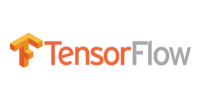
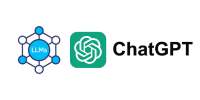
.png)
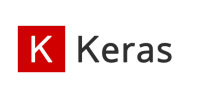
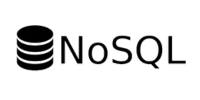
Process and vectorize text using tokenization, stemming, and embedding techniques to prepare data for downstream tasks.
Understand attention mechanisms and build state-of-the-art encoder–decoder architectures for sequence modeling.
Survey generative modeling approaches—VAEs, GANs, autoregressive models—and their applications in media synthesis.
Learn to store and query high-dimensional embeddings and structured knowledge graphs for efficient semantic search.
Design conversational pipelines, integrate LLM APIs, and orchestrate AI agents to build interactive dialogue systems.
Tools that will be used:

.png)


Develop and deploy RESTful and GraphQL endpoints to serve ML models as production-ready microservices.
Containerize applications and manage remote Linux environments to ensure reproducible, scalable deployments.
Automate testing, building, and deployment workflows using tools like GitLab CI/CD to maintain high code quality.
Leverage Azure services for compute, storage, and ML ops—setting up resource groups, Kubernetes clusters, and monitoring.
Tools that will be used:


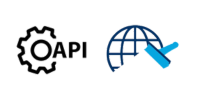
Final Project
Work within a team on your final project, applying everything you have learned in practice on a real-world use case. The program finishes with the presentations of the final projects, where you receive your certification.
16 weeks
320 hours
At the final phase of the Bootcamp you practice everything you learned by working on a real AI Engineering project.
The Bootcamp concludes with a Career Day, where you present your project and meet prospective employers.
Our instructors offer ongoing guidance, mentorship and support throughout your project work.
You will demonstrate your ability to deliver an end-to-end structured project and meet deadlines.

Companies Trusting Us
Industry Projects
Successful Graduates
Teaching Hours
Workshops on creating a standout CV and LinkedIn profile, mock technical interviews, and support throughout the hiring process.
After completing your training, you’ll be confident to apply for various AI Engineering roles, depending on your prior experience and field.
We link you with industry professionals and companies, expanding your network and supporting your career goals.
Tuition fees are payable in up to 4 installments. For more details about payment have a look at our FAQ.
Special discounts for companies and groups of individuals (2+ participants), contact us.
Fill in and submit your application. Tell us about yourself and your motivation to enroll.
We reach out to schedule an interview with a member of our team. We'll discuss your technical background and career goals, and provide details about the course.
We will invite you to a second interview with one of our AI Engineers to assess your programming skills and critical thinking through a discussion.
You're ready to embark on your AI Engineering journey. You'll receive the Prep-Work exercises to work on before your first day of the Bootcamp.
How can I learn AI Engineering?
Through an intensive bootcamp like ours: you'll cover the theory in short lectures and then spend most of your time programming, debugging and developing real AI solutions under expert guidance.
What are the most important AI Engineering skills to have?
What is AI Engineering;
AI Engineering is the discipline of designing, building and developing scalable artificial intelligence systems - combining software engineering, machine learning and business practices to transform models into production-ready applications.
What’s the difference between an AI Engineer and a Data Scientist?
A Data Scientist focuses on exploring data and modeling insights, while an AI Engineer builds and integrates those models into software systems, handling deployment, scaling, and monitoring.
Kickstart your career as an AI Engineer!
.jpg)
Copyright © 2026 Big Blue Data Academy. All rights reserved | Created by developNET